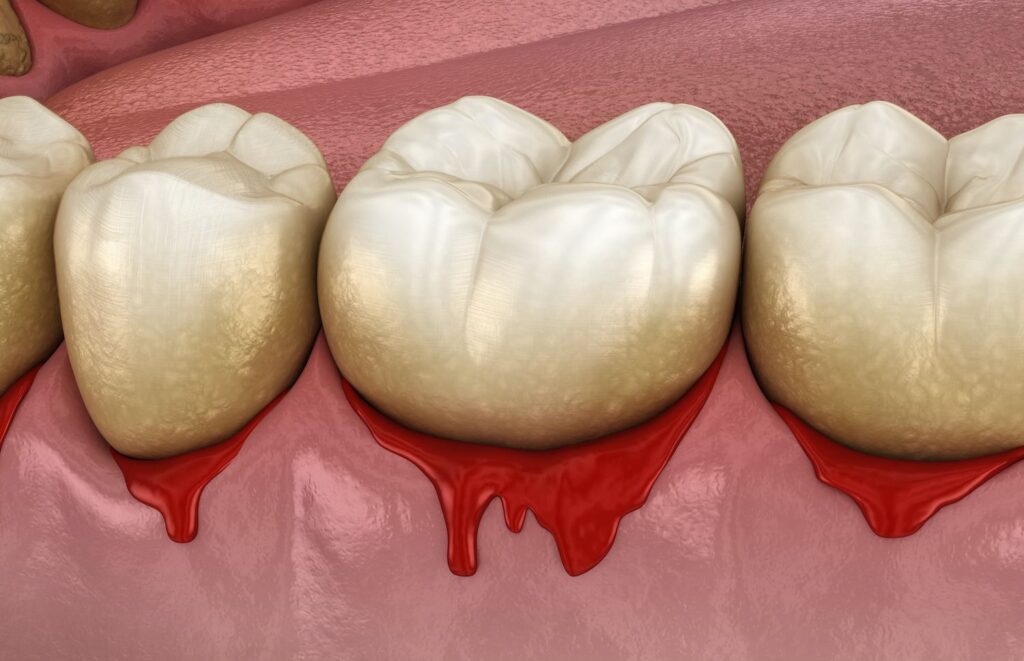At-home oral hygiene is important if you want to keep your smile clean, beautiful, and healthy. But good oral hygiene will also include attending teeth cleaning appointments and oral exams at your dentist’s office on a regular basis.
This preventative dental care can play an especially crucial role in maintaining your periodontal health. Healthy gums will keep your teeth securely in place in your mouth. But without proper oral hygiene, you could suffer deterioration in your gum health that can affect the rest of your smile.
You might feel more inclined to book a routine dental check-up when you know details about the advantages of this dental attention. Check out four benefits that your regular dental check-up can bring to your gums when you read on.

Relieve Soreness in Your Gums
Oral pain of any kind is not normal. Even if you think you can tolerate an aching tenderness or soreness in your gums, you should not ignore this issue. This type of pain in your gums can occur for a number of reasons, but irritation to the tissue is the common denominator.
When you brush and floss your teeth, you remove plaque and other harmful residues from your teeth. But your toothbrush cannot always easily clean near your gumline. You can form build-up that will aggravate the gums and make them hurt.
You cannot remove stubborn build-up like tartar on your own. A dentist will need to thoroughly scrape your smile clean and bring you relief from gum pain.
Reduce Puffy Appearance in Gum Tissue
Do your gums appear swollen and red? Inflamed gum tissue can look harsh and disrupt your beautiful smile. If you want to ensure your gums retain that firm and pink finish, you should keep up with good oral hygiene.
This will mean attending regular check-ups at your dentist’s office. When your dentist removes irritants from near the gum tissue, the swelling will go down. You can look forward to a healthy and gorgeous smile again.
Identify Signs of Gum Disease
Gum disease is a type of infection that leads to inflammation and deterioration in the gum tissue. It is a common condition that develops when oral bacteria spread and infect the gums. Symptoms include swelling, bleeding, and pain in the gum tissue.
However, in many cases, patients will not experience visible symptoms at all if they contract gum disease. That does not mean they might not face gum recession and other complications from this infection.
A dentist can diagnose gum disease in these patients with a periodontal disease screening during a routine dental check-up. Then they can treat the infection before it causes lasting damage.
Prevent Irreversible Periodontal Problems
The best way to avoid periodontal discomfort and prevent gum disease is with consistent and thorough oral hygiene. At-home and in-office oral hygiene efforts remove harmful build-up that might otherwise hurt your gums and encourage oral bacteria to spread.
If you skip professional dental attention, you could face a high risk of developing gum disease and other issues that might seriously affect your oral health. So make sure you get the preventive oral health care that you need according to your dentist’s recommendations.
